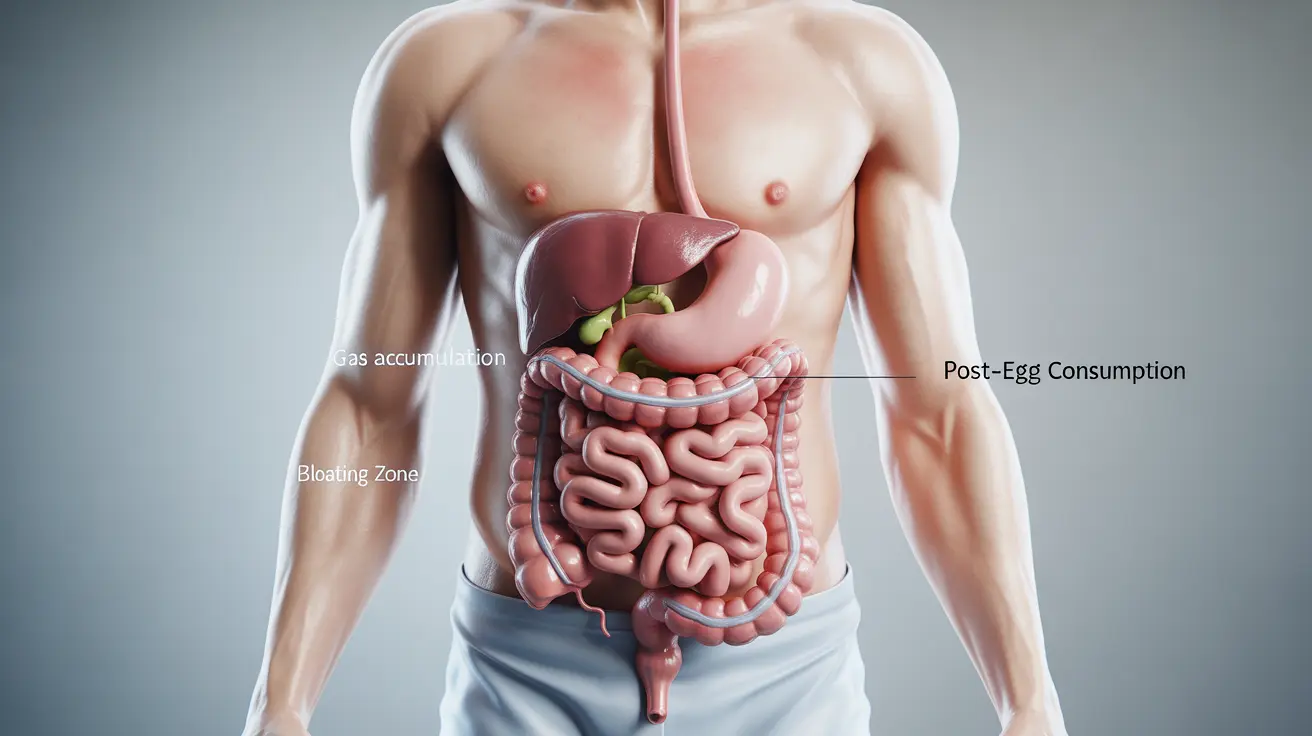If you've ever experienced gas and bloating after eating eggs, you're not alone. Many people report digestive discomfort after consuming eggs, which can be related to egg intolerance, sensitivity, or other digestive factors. Understanding why eggs might cause these symptoms is crucial for managing your diet and overall digestive health.
While eggs are a nutritious food rich in protein and essential nutrients, some individuals may have difficulty digesting them properly. This article explores the reasons behind egg-related digestive issues and provides practical solutions for managing these symptoms.
Understanding Egg Intolerance vs. Egg Allergy
It's important to distinguish between egg intolerance and egg allergy, as they are two distinct conditions with different mechanisms and potential consequences:
Egg Intolerance
Egg intolerance occurs when your body has difficulty digesting eggs, typically due to enzyme deficiencies or sensitivity to specific proteins. This condition primarily affects the digestive system and usually results in symptoms like gas, bloating, and stomach discomfort.
Egg Allergy
An egg allergy, on the other hand, involves an immune system response that can be more severe and potentially dangerous. Allergic reactions typically occur quickly and can include symptoms like hives, difficulty breathing, and in severe cases, anaphylaxis.
Common Causes of Gas from Eggs
Several factors can contribute to experiencing gas after eating eggs:
- Protein sensitivity
- Sulfur content in egg yolks
- How the eggs are prepared
- Individual digestive system differences
- Underlying digestive conditions
Identifying Symptoms of Egg Intolerance
The symptoms of egg intolerance typically appear within a few hours after consumption and may include:
- Bloating and gas
- Stomach cramps
- Nausea
- Diarrhea
- General digestive discomfort
Managing Egg-Related Digestive Issues
Dietary Modifications
Consider these strategies to help manage egg-related digestive issues:
- Start with small portions to test tolerance
- Try different cooking methods
- Consider egg whites only
- Keep a food diary to track symptoms
- Experiment with egg alternatives in cooking
Prevention Strategies
To minimize gas and bloating from eggs:
- Eat eggs as part of a balanced meal
- Avoid eating eggs on an empty stomach
- Chew thoroughly to aid digestion
- Consider taking digestive enzymes (after consulting with a healthcare provider)
- Stay hydrated throughout the day
Frequently Asked Questions
Why do eggs make me gassy, and is this a sign of egg intolerance or allergy?
Experiencing gas after eating eggs can be a sign of egg intolerance, but it's not necessarily indicative of an allergy. Gas occurs when your body has difficulty breaking down certain proteins in eggs or due to the sulfur content. This differs from an allergic reaction, which involves immune system responses and typically causes more immediate and severe symptoms.
What are the main symptoms of egg intolerance, and how long after eating eggs can they appear?
The main symptoms of egg intolerance include gas, bloating, stomach cramps, and diarrhea. These symptoms typically appear within 2-6 hours after consuming eggs, unlike allergic reactions which occur more rapidly.
How do doctors diagnose egg intolerance, and are food sensitivity tests reliable?
Doctors typically diagnose egg intolerance through elimination diets and food diary analysis. While food sensitivity tests are available, their reliability varies. The gold standard for diagnosis is eliminating eggs from your diet and then reintroducing them while monitoring symptoms.
Can egg intolerance go away over time, or does it usually last for life?
Egg intolerance can be temporary or permanent. Some people may develop better tolerance over time, while others may need to manage it long-term. Working with a healthcare provider can help determine the best approach for your situation.
What are the best ways to manage and prevent gas and bloating from eggs if you're intolerant?
The best management strategies include limiting portion sizes, trying different cooking methods, considering egg whites only, taking digestive enzymes (with medical approval), and maintaining proper eating habits like thorough chewing and staying hydrated. Some people find success with gradual reintroduction of eggs in small amounts.




